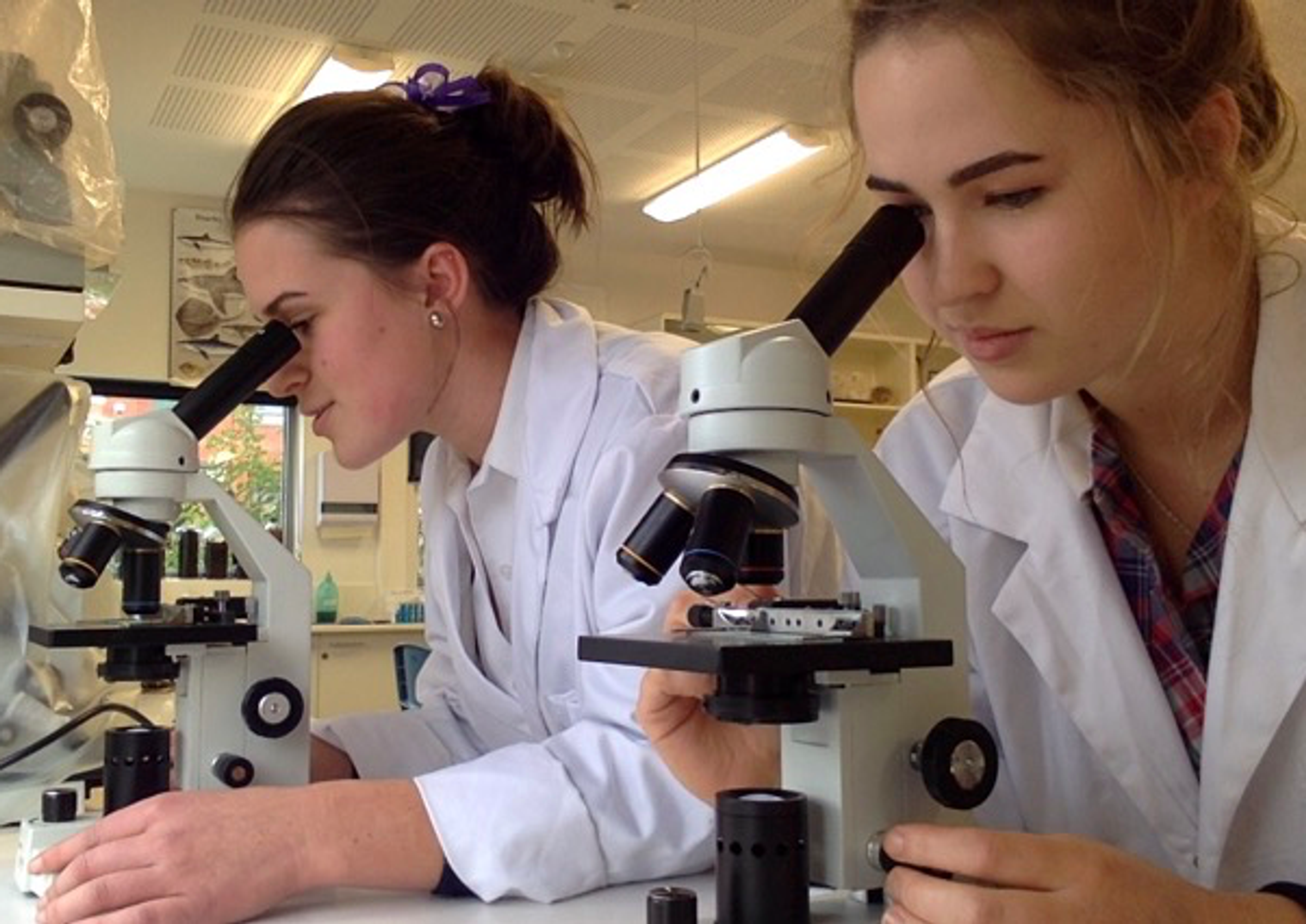TCE Biology Level 2

TCE Biology Level 2
| 🎓Course Type | Non pre-tertiary |
|---|---|
| TASC Code | BIO215123 |
| TCE Points | 15 |
| ⏱Hours | 150 |
| ✔️Standard | N/A |
| 📚Prerequisites | Nil |
📎Desirable prior experiences | Students undertaking this course are expected to have completed any form of Year 10 Science |
| 📝Assessment | Internal - ongoing against criteria No external examinations |
What will I learn?
It is intended that students will:
- explore cell structure, processes and function;
- investigate organ systems and their place within multicellular organisms;
- apply this knowledge when inquiring into ecosystems and biodiversity;
- use these concepts to explore one or more contexts or themes; for example, human biology, agriculture, environmental biology, biochemistry or marine studies;
- come to understand how applying biological knowledge is central to society;
- explore relationships between biology and society and investigate the processes of biological discovery; and
- use practical inquiry to engage with and understand the natural world.
The content of the syllabus consists of three interrelated modules:
- Science as a human endeavour and science inquiry
- Cell biology
- Multicellular organisms and environmental interactions
Why should I consider this course?
The purpose of science education is to develop scientific literacy, helping learners:
- to be interested in, and understand, the world around them;
- to engage in discourse about the scientific and technological aspects underlying global and local issues;
- to understand the testable and contestable nature of science, and question the claims made by others about scientific matters;
- to be able to identify questions, draw evidence-based conclusions and discuss their validity; and
- to form opinions, that are reasoned and informed, about the environment, about their own health and well-being, and about the role and impact of science on society.
Biology is the study of the fascinating diversity of life as it has evolved and as it interacts and functions. Investigation of biological systems and their interactions, from the molecular level to cellular processes to ecosystem dynamics, has led to biological knowledge and understanding that enable us to explore and explain everyday observations, find solutions to biological issues, and understand the processes of biological continuity and change over time.
What skills does this course provide?
On successful completion of this course, learners will be able to:
- set and meet individual and collaborative goals within timeframes
- access and communicate biological understanding using qualitative and quantitative representations
- use science inquiry skills to design, conduct, analyse and communicate investigations into biological systems
- identify how theories and models have developed based on evidence from multiple disciplines and identify the uses and limitations of biological knowledge in a range of contexts
- identify the structure, components and function of cells
- identify how cellular processes and biochemistry are related to the need to exchange matter and energy with a cell’s immediate environment
- identify how multicellular organisms reproduce and consist of multiple interdependent, hierarchically organised systems, that enable the exchange of matter and energy with their immediate environment
- identify ecosystem diversity and dynamics with reference to biotic and abiotic interactions and use classification to organise and communicate in relation to biodiversity.
What Pathway Options does this course provide?
Biology Level 2 is designed to be taken prior to Biology Level 3. It is highly recommended that students wishing to study Biology Level 3 in Year 12 enrol in Biology Level 2 in Year 11.
In addition, skills developed in this course would provide a pathway into other level 3 pre tertiary subjects if desired (for example, Physical Science, Environmental Science, Food and Nutrition, Health and Sports Science. This course also provides general scientific literacy, data interpretation and analytical thinking skills which are transferable skills in their own right.
The study of Biology Level 2 will provide a foundation for learners to consider and to make informed decisions about contemporary biological issues in their everyday lives.
It may be studied as the foundation of a pathway to vocational opportunities in areas such as agriculture, botany, zoology, marine science, biotechnology, health science, pharmacy, nursing, medicine or veterinary science. It is also suitable for learners wishing to study a science as part of a general education.
